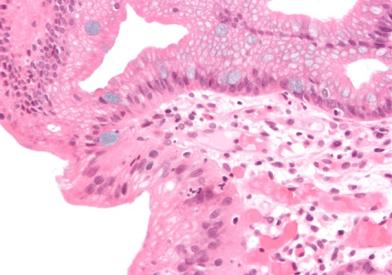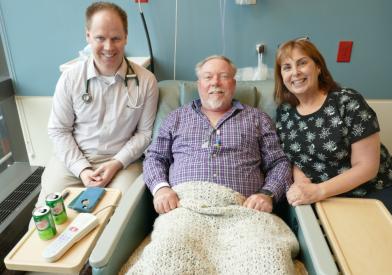At the Center for Esophageal and Gastric Cancer, our mission is to improve the outcome for patients with esophageal and stomach cancer by advancing national standards of care, using the best therapies available, minimizing complications through collaboration in multi-disciplinary clinics, and developing innovative therapies for the future.
The Center for Esophageal and Gastric Cancer brings together specialists from Dana-Farber Brigham Cancer Center who are improving the way these cancers are diagnosed and treated. Our team of medical, surgical, and radiation oncologists, gastroenterologists, radiologists, and pathologists has decades of experience in caring for patients with esophageal cancer and gastric (stomach) cancer, as well as Barrett's esophagus.
- Learn about how we diagnose and treat esophageal cancer and Barrett's esophagus.
- Learn about how we diagnose and treat gastric (stomach) cancer.
As a highly specialized center, we focus on the distinct needs of people with these particular diseases. This enables us to provide a very personalized approach to care for our patients.
We've treated thousands of people with these conditions, and this vast experience has given us an unparalleled level of expertise. Patients come to our center from around the world for surgery, second opinions, and an optimal plan to beat their cancer.
Experience affects outcomes. Studies show that people with esophageal and stomach cancer have better outcomes at high-volume centers like ours whose specialists have treated large numbers of patients. Our own research also shows enormous benefits from having dedicated thoracic surgeons and a thoracic ICU, which translates to better outcomes for patients with esophageal cancer.








